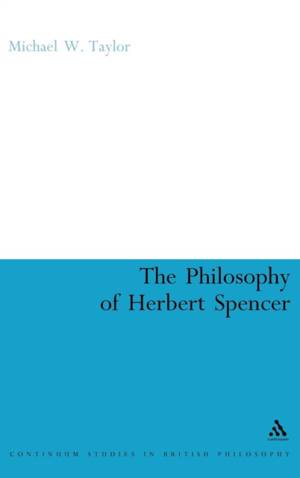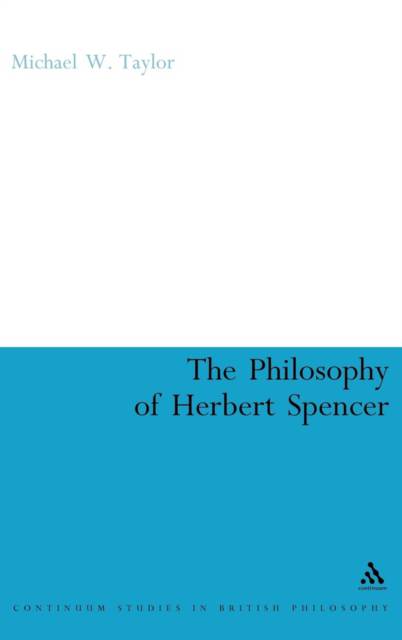
Bedankt voor het vertrouwen het afgelopen jaar! Om jou te bedanken bieden we GRATIS verzending (in België) aan op alles gedurende de hele maand januari.
- Afhalen na 1 uur in een winkel met voorraad
- In januari gratis thuislevering in België
- Ruim aanbod met 7 miljoen producten
Bedankt voor het vertrouwen het afgelopen jaar! Om jou te bedanken bieden we GRATIS verzending (in België) aan op alles gedurende de hele maand januari.
- Afhalen na 1 uur in een winkel met voorraad
- In januari gratis thuislevering in België
- Ruim aanbod met 7 miljoen producten
Zoeken
Omschrijving
Herbert Spencer (1820-1903) is remembered today only as an alleged 'Social Darwinist' who applied the theory of the survival of the fittest to society. Yet he was among the most influential and widely-read philosophers of the nineteenth century. There were few Victorian thinkers and scientists who did not know his work, and who did not formulate their own positions partly in reaction to his.
Michael Taylor's book provides the only detailed and reliable modern survey of the whole corpus of Spencer's thought. Taylor introduces a Spencer very different to his posthumous reputation: not primarily a political philosopher, but the architect of a comprehensive philosophical system that aimed to demonstrate the inevitability of human perfection through universal natural laws. He also locates the Synthetic Philosophy firmly in its place and time by showing how it developed out of the concerns of a group of like-minded British writers and thinkers during the 1850s. This book will be of interest to historians of philosophy and of science, to social scientists, to scholars and students of nineteenth century literature, and to anyone who wishes to understand one of most important figures in Victorian intellectual life.Specificaties
Betrokkenen
- Auteur(s):
- Uitgeverij:
Inhoud
- Aantal bladzijden:
- 198
- Taal:
- Engels
- Reeks:
Eigenschappen
- Productcode (EAN):
- 9780826487230
- Verschijningsdatum:
- 15/11/2007
- Uitvoering:
- Hardcover
- Formaat:
- Ongenaaid / garenloos gebonden
- Afmetingen:
- 186 mm x 240 mm
- Gewicht:
- 353 g

Alleen bij Standaard Boekhandel
+ 780 punten op je klantenkaart van Standaard Boekhandel
Beoordelingen
We publiceren alleen reviews die voldoen aan de voorwaarden voor reviews. Bekijk onze voorwaarden voor reviews.









